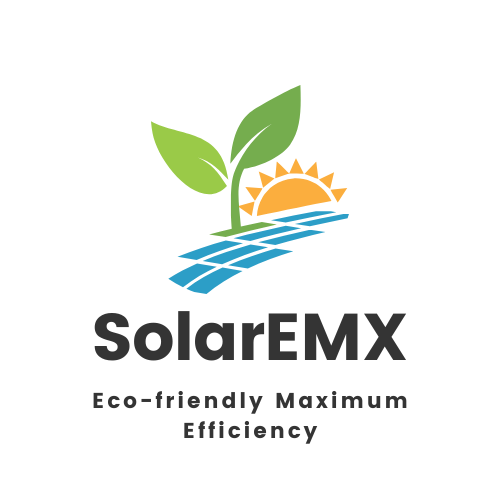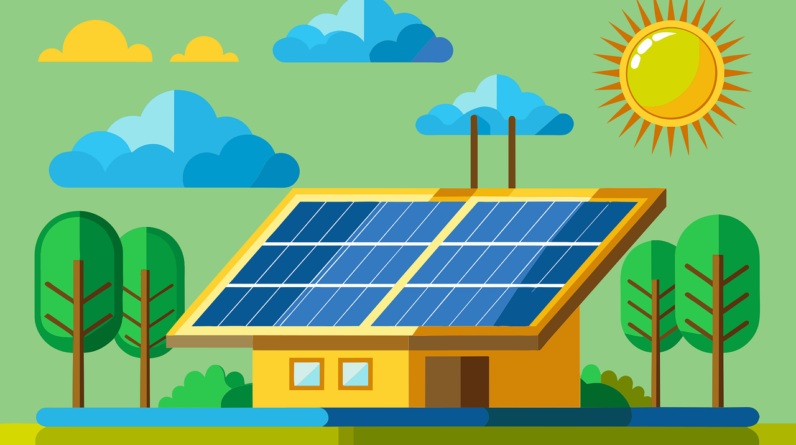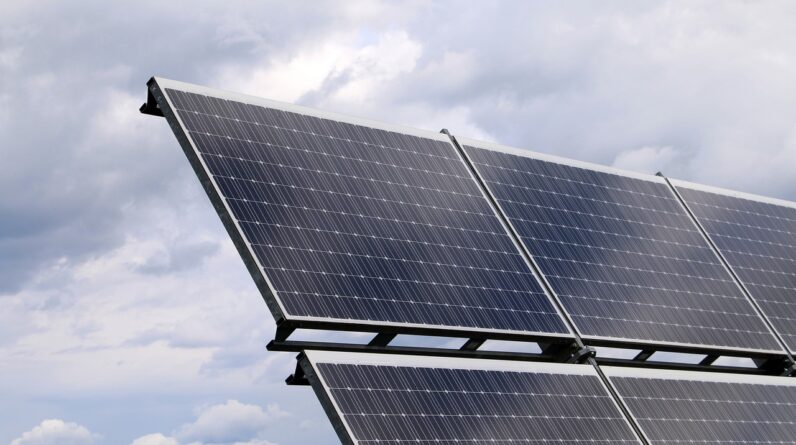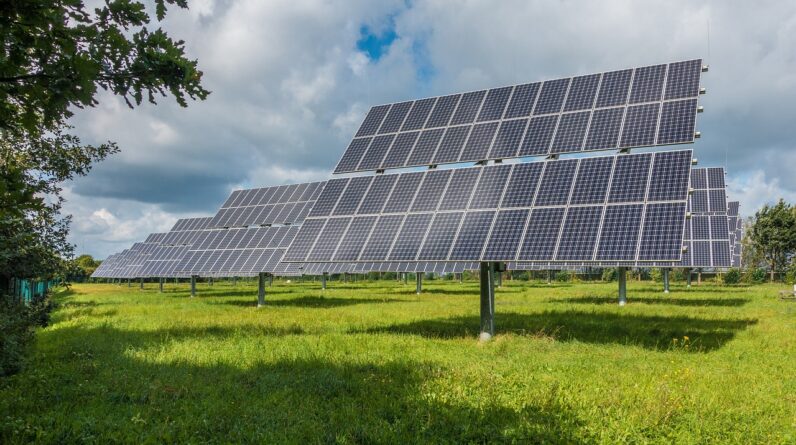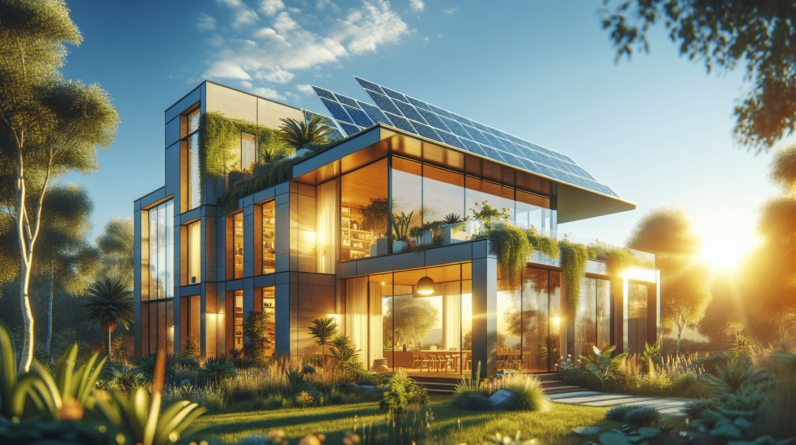
Discover how installing solar panels on new homes can lower energy bills, increase property value, and promote sustainability. Explore the benefits today!
Have you ever considered how installing solar panels on a new home could transform not only your energy bills but also your living environment? In today’s world, where ecological concerns and energy costs are at the forefront, the decision to incorporate solar energy into your new home build has never been more relevant. Let’s take a closer look at the various benefits that solar panels offer.
Understanding Solar Energy
Solar energy is harnessed from sunlight using solar panels. These panels convert the sun’s rays into electricity, providing a sustainable energy source. The technology has improved significantly over the years, making it more efficient and accessible for homeowners.
How Solar Panels Work
Solar panels consist of photovoltaic (PV) cells. When sunlight hits these cells, it energizes electrons, creating an electrical current. This current can be used immediately to power your home or sent into the grid.
- Direct Use: Connects your home appliances directly to the solar power system.
- Grid Transfer: Excess energy produced can be directed back to the utility grid, sometimes earning you credit on your energy bill.
Understanding how this process works is essential, as it empowers you to make informed decisions regarding your energy consumption and savings.
Financial Benefits
Installing solar panels on your new home can result in significant financial savings. This section will break down some of these benefits in detail.
Reduced Energy Bills
One of the most immediate advantages of solar panels is the reduction in electricity costs. Depending on your solar panel system’s size and efficiency, you can dramatically lower your monthly bills.
- Energy Independence: You generate your own power, meaning you’re less affected by rising energy prices.
- Potential Savings: Homeowners have reported cuts of up to 50% or more on utility bills.
Tax Incentives and Government Rebates
Many governments encourage the use of solar energy through various incentives and rebates. You might want to look into:
- Investment Tax Credit (ITC): In many areas, you could reduce your overall costs by claiming a percentage of your solar installation as a tax credit.
- Local Rebates: Check with your local utility companies and state programs, as they often provide additional financial benefits.
Increase in Property Value
Investing in solar panels can enhance your home’s resale value. Energy-efficient homes are increasingly attractive to buyers.
| Factor | Impact on Property Value |
|---|---|
| Solar Installation | Positive, with an average increase from 3-4% |
| Annual Energy Savings | Increase attractiveness in the market |
When it’s time to sell, having solar panels could be a standout feature that sets your home apart.

Environmental Benefits
The importance of sustainable living cannot be overstated, and solar energy is a significant step in that direction.
Reduction of Carbon Footprint
By using solar energy, you’re not only saving money but also contributing to a greener planet:
- Lower Emissions: Solar power significantly reduces greenhouse gas emissions compared to traditional fossil fuels.
- Sustainable Energy Source: The sun provides an abundance of energy—free and renewable.
Conservation of Resources
Conserving non-renewable resources is critical. Utilizing solar energy decreases the demand for fossil fuels, helping protect the environment:
- Preservation of Natural Resources: Using the sun as an energy source helps to conserve water and other natural resources. Traditional energy production often requires significant water usage.
Energy Independence
Do you want to break free from the unpredictability of energy costs? Solar panels can offer a level of self-sufficiency that is increasingly appealing for homeowners.
Predictable Energy Costs
Solar panels can free you from fluctuations in electricity prices. By generating your own electricity, you control your energy costs:
- Fixed Energy Spend: Once the initial investment is made, your energy production becomes predictable and largely unaffected by market changes.
Reduced Dependency on Grid Energy
With solar panels, you can rely less on your local utility company. This not only provides peace of mind but also increases your home’s resilience during power outages.
- Battery Storage Options: Many homeowners opt to add battery storage, allowing surplus energy to be stored and used when needed, further enhancing your independence.
Maintenance and Longevity
Although installing solar panels may seem daunting, they are surprisingly low-maintenance, which enhances their allure.
Minimal Maintenance Requirements
Solar panels are known for their durability. Most systems come with warranties of 20 to 25 years, assuring reliability and longevity.
- Cleaning Needs: Occasionally, you may need to clean your panels from dust or debris, but rain often takes care of this naturally.
Regular System Checks
While maintenance needs are minimal, performing regular system checks can help ensure optimal performance. Many manufacturers recommend an annual inspection, which can identify any potential issues.
- Performance Monitoring: Many systems come equipped with monitoring apps that allow you to check how much energy you are producing in real-time.
Technological Advancements
The solar industry is continually evolving, leading to improved efficiency and accessibility.
Enhanced Efficiency Rates
Solar panels have become more efficient over time. Modern systems convert a higher percentage of sunlight into usable energy.
- Innovative Designs: New technologies, including bifacial panels and tracking systems, can enhance energy capture, making your solar panel system more efficient.
Smart Integrations
Many solar panel systems offer smart home integrations, allowing you to monitor and control your energy consumption easily:
- Smart Meters and Apps: These technologies help homeowners analyze usage patterns and optimize energy consumption.
Community Impact
Joining the solar energy movement impacts your community positively.
Promoting Renewable Energy Use
By choosing solar energy, you contribute to a shift in energy consumption trends, encouraging others in your community to follow suit.
Job Creation
As the solar market grows, so do job opportunities within your community. Local businesses often hire workers for installations, repairs, and maintenance, contributing to the local economy.
- Community Programs: Some communities have programs aimed at further promoting solar usage, creating a supportive environment for solar adoption.
Conclusion
Choosing to install solar panels on your new home build is a decision that promises a wealth of benefits. From financial savings and environmental advantages to energy independence and community impact, the advantages are compelling.
Your Next Steps
If you’re thinking about installing solar panels for your new home, consider the following steps:
- Research Local Incentives: Understanding what financial incentives are available in your area can provide clarity on your potential savings.
- Consult a Professional Installer: Engaging a qualified installer will help you determine the best system for your home’s needs.
- Monitor and Enjoy: Once your panels are installed, enjoy the benefits, and monitor their performance to maximize your savings.
With so many reasons to consider solar energy, now is an exciting time to take the leap into renewable energy. Imagine powering your home with clean, sustainable energy while contributing positively to your community and the environment! There’s no better time than now to start this journey.
